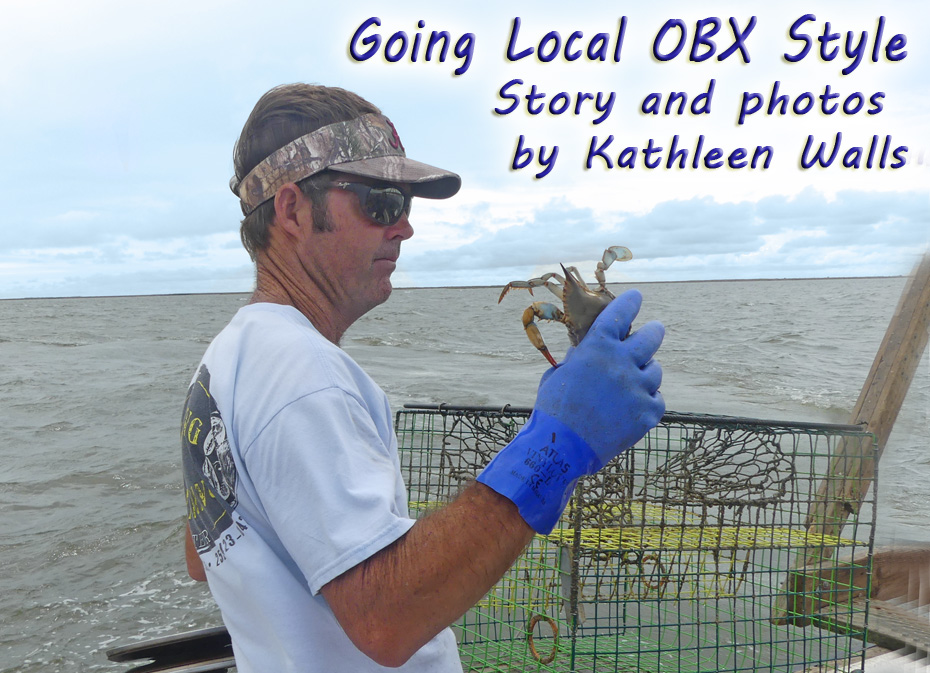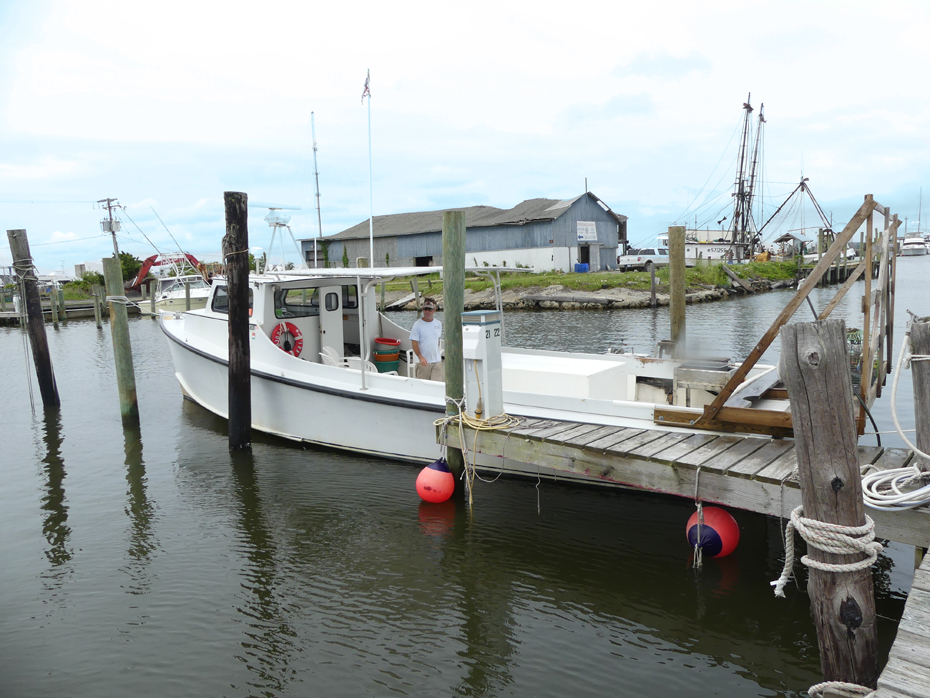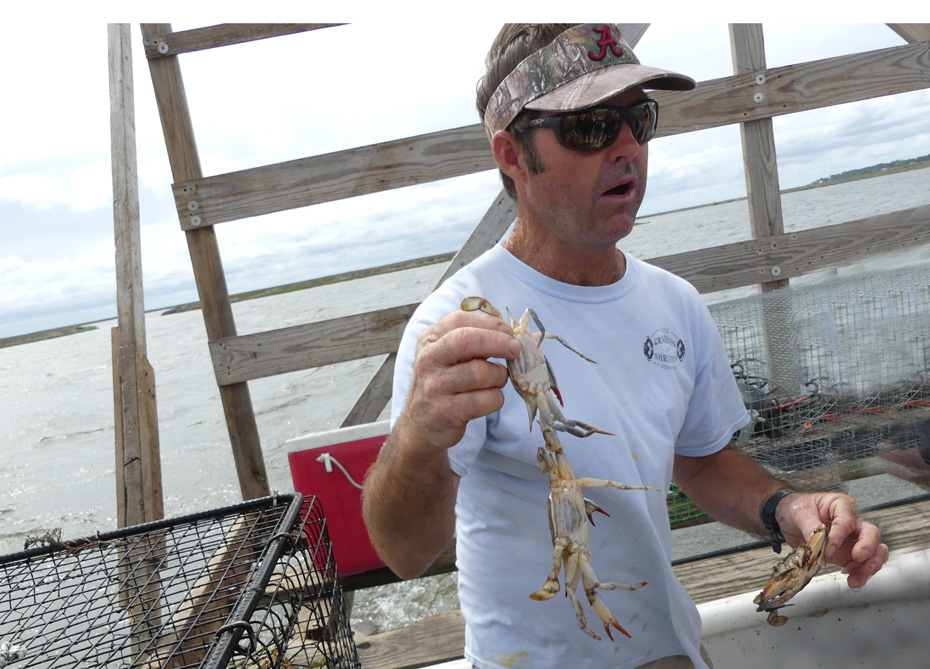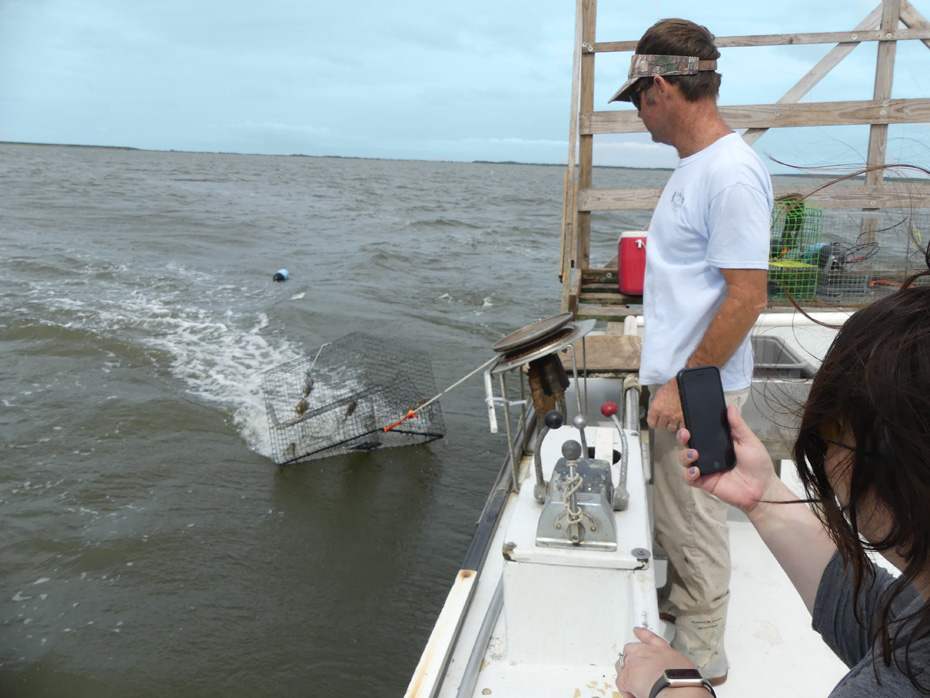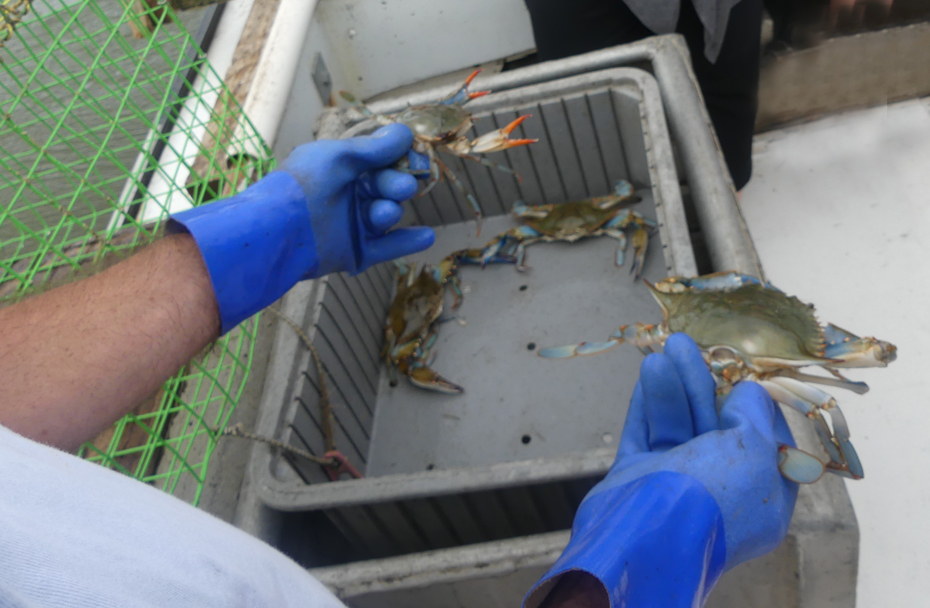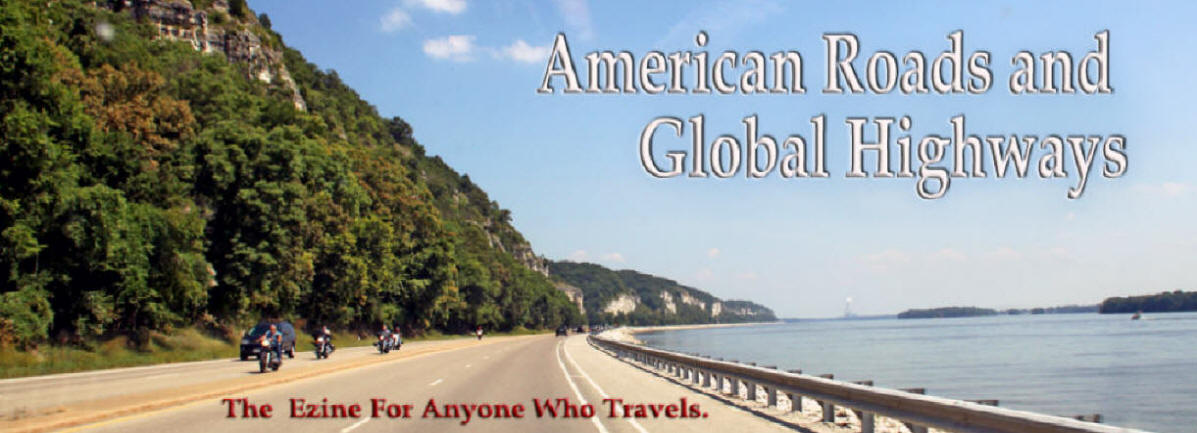
|
|
|
|
Making a living from the sea is not an easy road. Yet, it's the road taken by many Outer Banks residents. Longtime waterman, Captain Marc Mitchum has earned his living as a shrimper and crabber for many years with his boat, the Jodie Kae.
He still does commercial crabbing and shrimping but seven years ago he decided to start doing a charter in the summer. With OBX Crabbing and Shrimping Charter he offers visitors a hands-on trip to go crabbing and shrimping like a professional. When he first came up with the idea. His sons, who were made to do this growing up and considered it hard work, thought he was crazy. They said, "Why would anyone pay to go out and work at crabbing and shrimping?" Those boys underestimated the lure of the sea. Marc's first season he took out about 20 trips and last year it was 180 trips. He takes out four charters a day starting at 6AM. On our trip we learned so much and had a great time.
In the summer he catches hard crabs and shrimp. In the spring he does the commercial crabbing. In April and May, he catches peelers. Those are the crabs just about to molt and shed their shells. Most of the peelers are females. The last shed is when they mate, so for bait he uses a male crab. He showed us his peeler pot, a large cage with a chamber when the crabs can crawl in but not get out. During the summer it's hard crabs. He uses bait for that. Crab pots have larger mesh and small holes where small crabs can get out. The bait section is smaller as he is putting in bait not a live crab. He explained, "I want the little crabs to get out. I don’t want them to be eating up my bait" He told us a little about shrimping even though we were too early for shrimping season. "Shrimp season on brown shrimp starts later in the summer and then there is a fall shrimp season, on a shrimp called green tails, that sometimes stretches into November. Shrimp only live a year. Everything we do is weather related."
Captain Marc took us far out into the sound and showed us how to reel in a crab pot. Earlier we had feared we might be rained out but the sun was shining and all was right with our world. We asked about how long the pots remain out and how many pots he works. He replied, "Two days is ideal sometimes it's not necessary. Sometimes it's so good I come back every day. After two days, your bait is rotten. Male crabs will eat rotten bait; females will not. I have 150 pots out. Every time I take people out, they are guaranteed to catch crabs. Everybody out here knows everybody. I know the owner of every buoy out there. We're neighbors. There may be a thief or two but we all know who they are."
He showed us how to tell the difference between male, called Jimmies, and female crabs, called Sooks. Since restaurants like O'Neils, here in Wanchese Harbor, where he sells much of his catch, price their crabs based on size and male or female. Some people prefer one to the other. He explained how the price can fluctuate, "There are a lot of variables in commercial crabbing. In spring it can be tough. Those female crabs might be $100; the same crab in Oct may be $20 a basket. There are a lot of variables. You think you are doing well and then the price goes down. That's just the way it is." Besides learning you get to
actually participate in catching the crabs. You can keep
your catch to cook or take to one of the many local
restaurants who will cook them for you. What
a fun way to learn from a local.
For more info:
|
Connect with us on:
American Roads and | ||
|
Public Disclosure--
Please Read I recently learned of a FTC law requiring web sites to let their readers know if any of the stories are "sponsored" or compensated. American Roads and Global Highways' feature writers are professional travel writers. As such we are frequently invited on press trips, also called fam trips. Most of the articles here are results of these trips. On these trips most of our lodging, dining, admissions fees and often plane fare are covered by the city or firm hosting the trip. It is an opportunity to visit places we might not otherwise be able to visit and bring you a great story. However, no one tells us what to write about those places. All opinions are 100% those of the author of that feature column. |
|||
|
Privacy Policy/ Archives /
Contributors /
Subscribe to
American Roads Books by
Kathleen Walls /
Contact /
Sponsor or Advertise/ American Roads & Global Highways Home Page
|
